Devlog #1: Game Structure Overview
Welcome to the first development log for Escape the Mad Empire! The game is a roguelike party-based tactical RPG upcoming on Steam. In this development log, we will give a general overview of the game structure. More specifically, we will cover the core game loop, the combat system, the story, the meta-game progression and the game modes.
Dungeon Crawl
The core of the game is wrapped around a traditional dungeon crawling experience. It features roguelike elements like perma-death, procedural generation, random monster and item spawns, etc.
One aspect we’re really focusing on is the diversity of effects associated with magic items. Apart from increasing replayability, having a great diversity of mechanics really helps to create emergent gameplay; mechanics interactions, player strategies and behaviors that were not specifically designed for. Emergent gameplay is a strong aspect of traditional roguelikes and roguelites like Spelunky, Binding of Isaac, etc.
The dungeons will also include all sorts of special rooms like boss battles, challenge rooms, village zones, shops, event rooms, traps, etc.
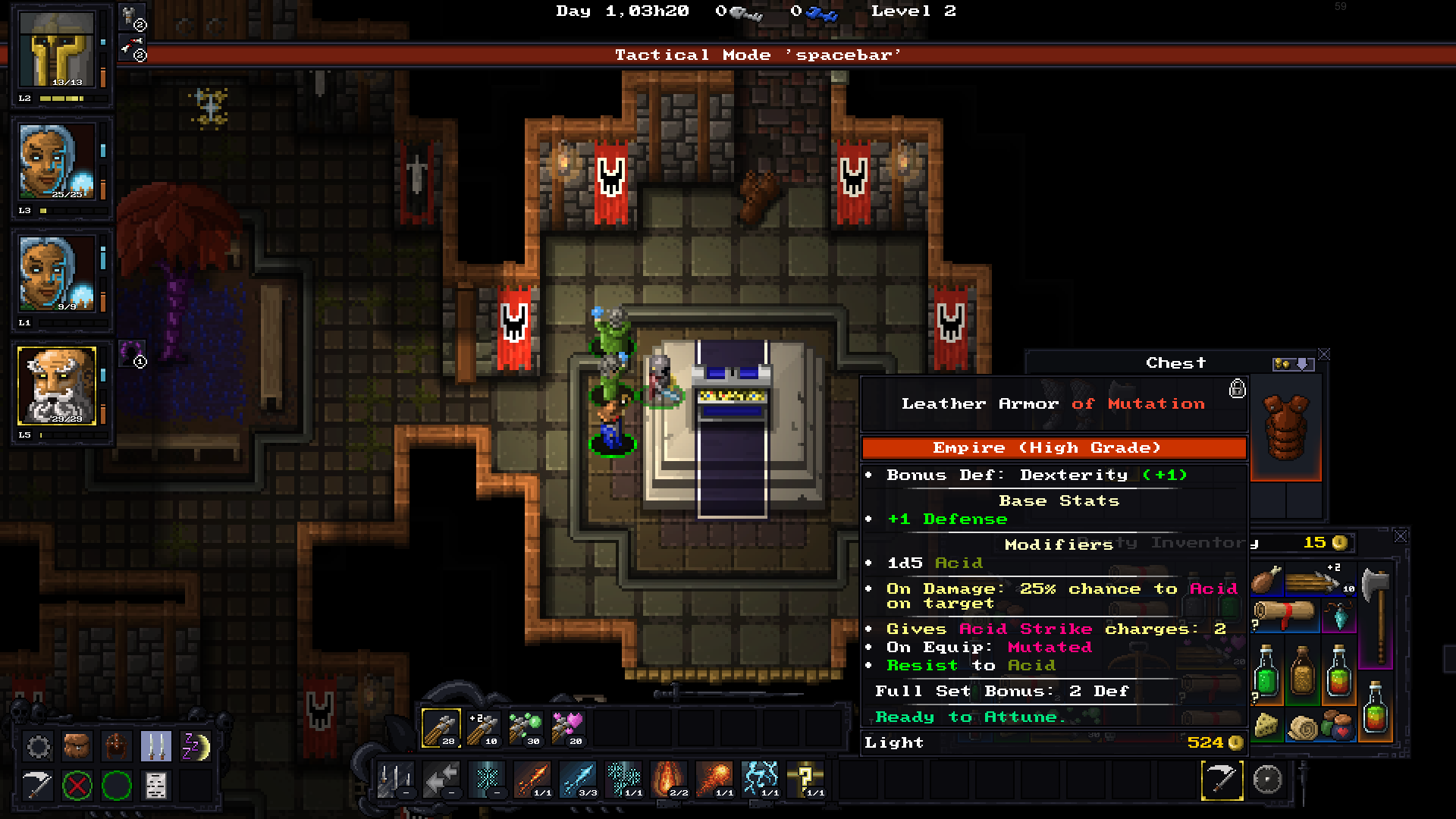
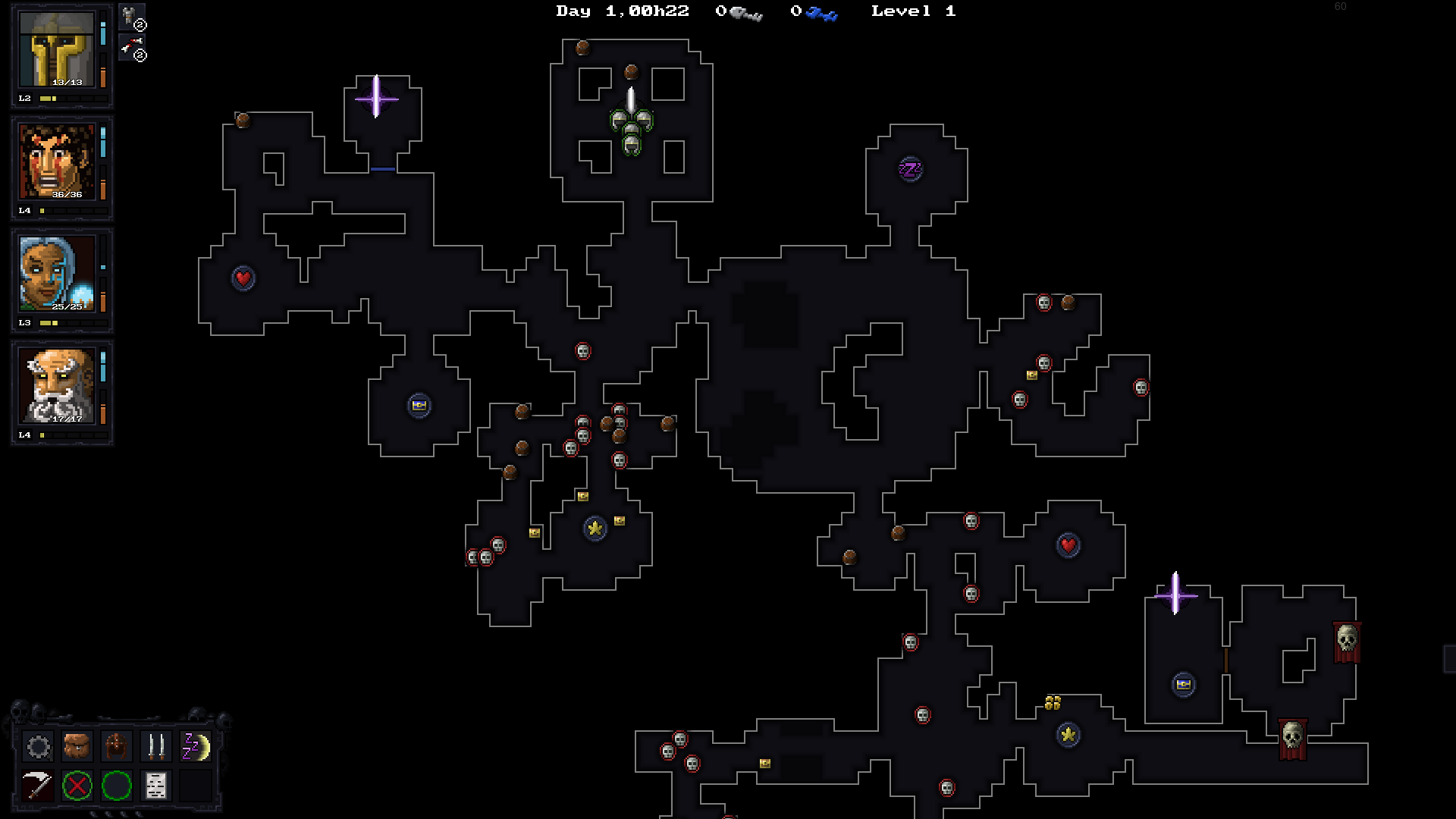
Combat System
We won't dive too much in details about the combat system because it will be the subject of our next development log. Just to cover the essential, it is worth mentioning that the key aspects of it are the party-based and real-time with instant-actions on pause elements, which distinguish the game quite a lot.
In terms of how the game plays, the best comparisons are games like old Baldur’s Gate, Pillars of Eternity, Pathfinder or Divinity. The mention of a turn-based game among real-time games is voluntary. The principle of instant-actions on pause (without casting delays) really gives another dimension to the game, which bridges the gap between real-time and turn-based RPGs. The references also imply that the game also features a spells & skills system that feels quite ‘CRPG’.
There’s also tons of tactical aspects to the game that increase the combat depth but again, another devlog will be written about this subject!
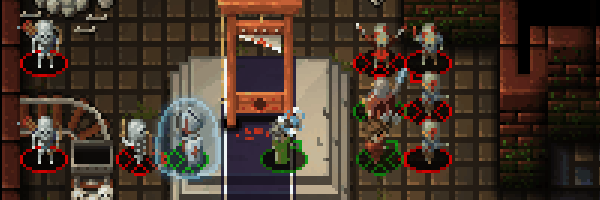
Epic Runs Mode
This game mode is closer to traditional roguelike games. Each game has its unique random seed that determines the dungeon structure, the monster and item spawns and so on (such that a player can replay exactly the same setup if he wishes to). The party is rolled randomly to encourage playing with various combinations. Dungeon runs can be played over a configurable number of floors. The loot is powerful and affects the player’s game in significant ways. The game has perma-death, which means that a dead character is lost (rare revive scrolls exceptions) and upon party death, a new game has to be created from scratch.
As the story evolves, new environments, monsters and items will be introduced in dungeon runs. In other words, playing the career mode will also make the Epic Runs mode evolve.
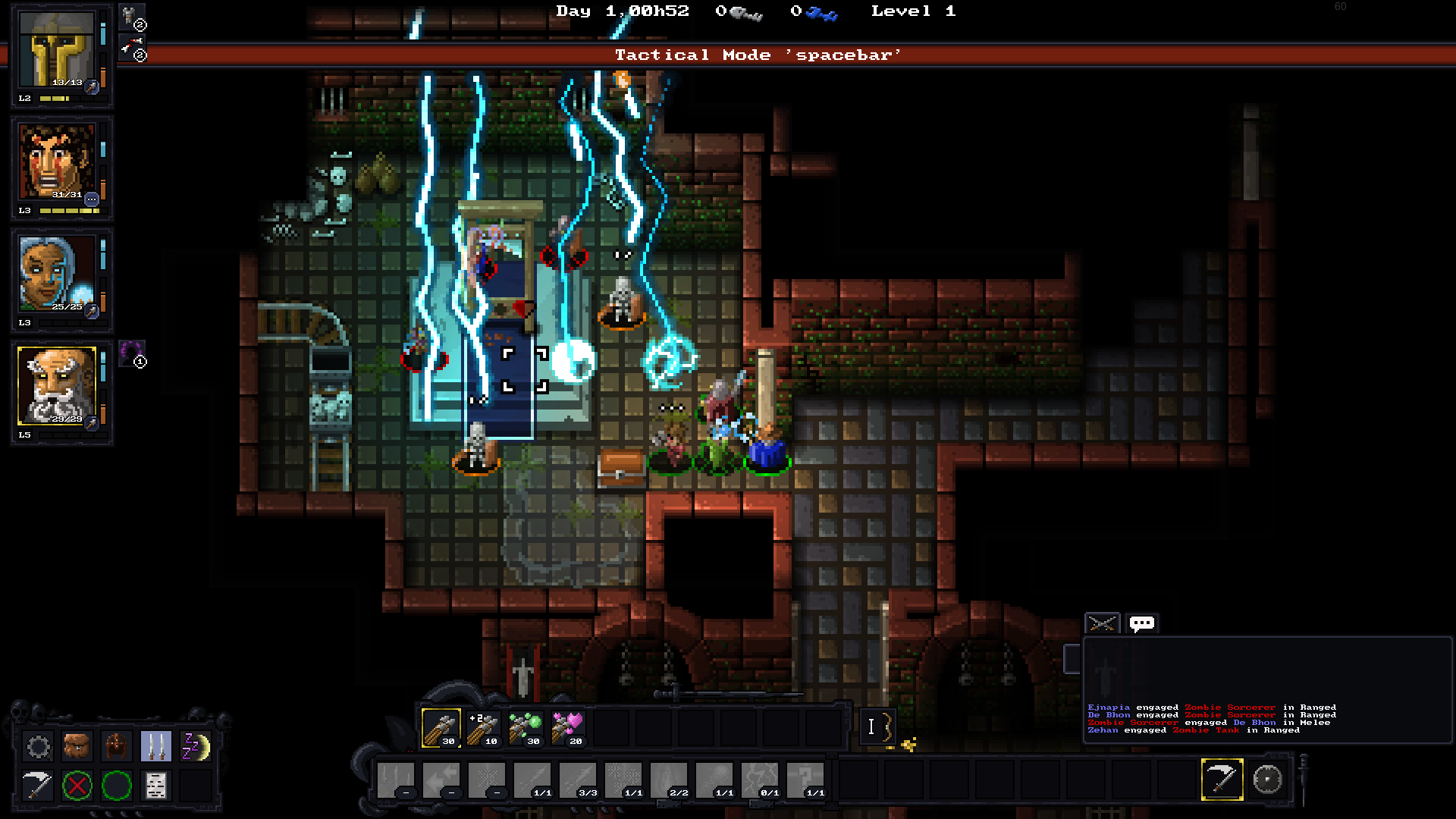
Meta-Game and Story
The meta-game is a way of adding a sense of progression between dungeon runs. Evolving story content and the addition of a career mode will serve that purpose.
The story is about an underground empire that discovered and mined incredibly powerful magic crystals they used to create abominations and mad experiments. Those doomsday devices ultimately backfired and created apocalypses across multiple dimensions.
As the game progresses, the player will reveal and discover those apocalypses. Apart from structuring the story content, those apocalypses will also serve as ‘content unlocks’ on which new visual thematics, monsters and items will be attached. In other words, the world will evolve with progression and dungeon runs will feel different.
Apocalypse themes also offer the perfect format for adding future content since those new episodes will be added seamlessly.
The game will also feature a quests system with main quests linked to story progression and secondary quests linked to rewards or mechanics unlocks.
Career Mode
The career mode adds a whole new gameplay layer to the game by introducing teams management and base-building elements. In this game mode, dungeon runs become ‘missions’ that can be completed for resources, game mechanic unlocks and story progression. This mode also allows the player to play in shorter sessions compared to the Epic Runs mode for which games can take several hours at a time.
Between missions, the player will go back to his base HUB where can manage his characters, shop for items, craft and upgrade his base. Those upgrades will in turn be used to develop new party teams more efficiently.
Missions will be structured by apocalypse themes and their related chapters. Each apocalypse will feature several chapters with their own mini-story and each chapter will be linked to a series of missions to be completed in a semi-random structure (with optional reset for replayability).
Progression in career mode will ‘remain’, meaning that losing in a mission or even losing a whole party won’t affect the general progression. The player will have to recruit new characters, develop and equip them in order to fully recover. The whole career mode structure has a lot of similarities with games like Darkest Dungeon I.
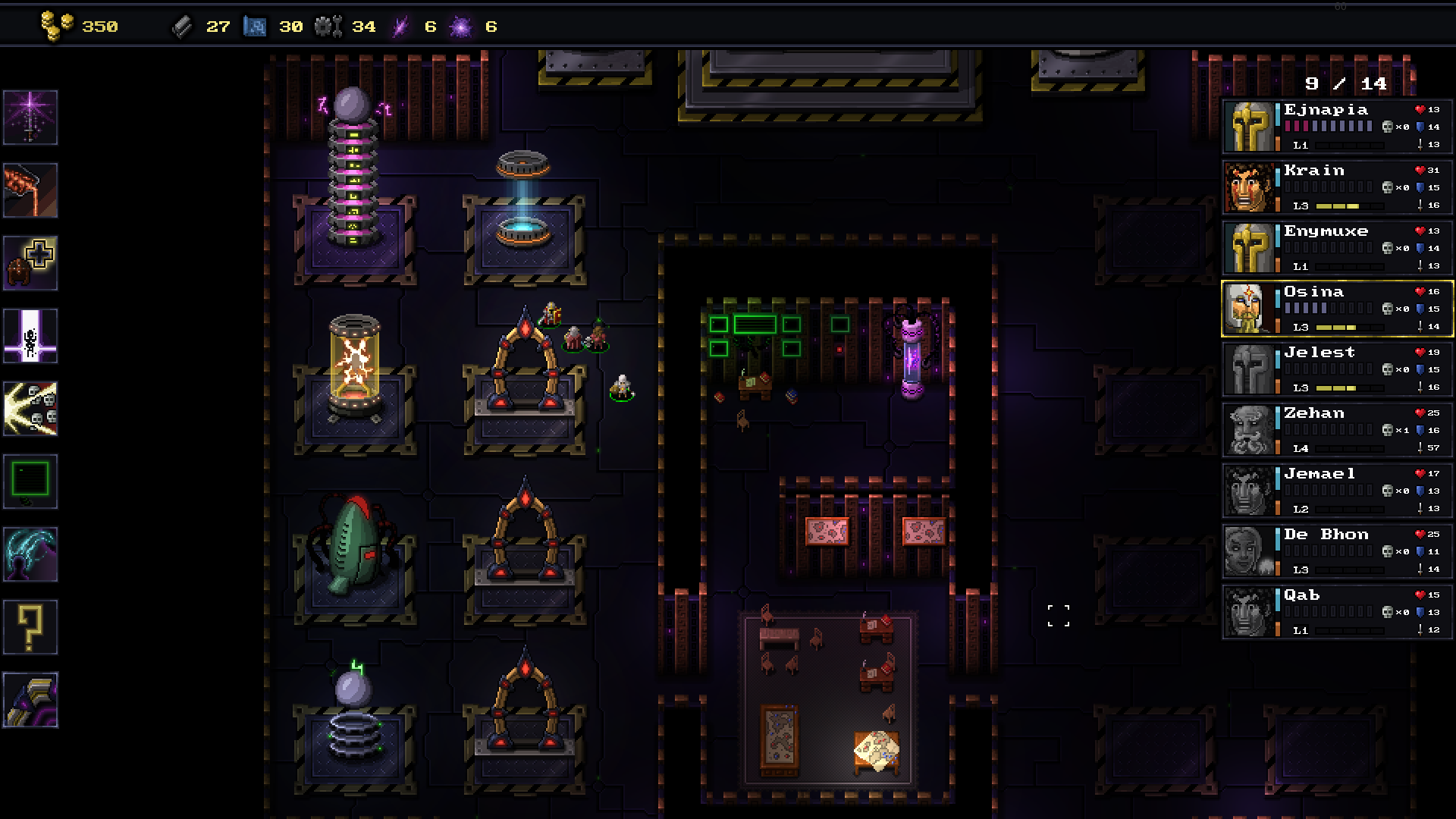
That’s it for the first development log! The next time we will probably cover the basics for the combat system. In the meantime, don't forget to wishlist or follow the game on Steam or follow us on twitter for more frequent information!



